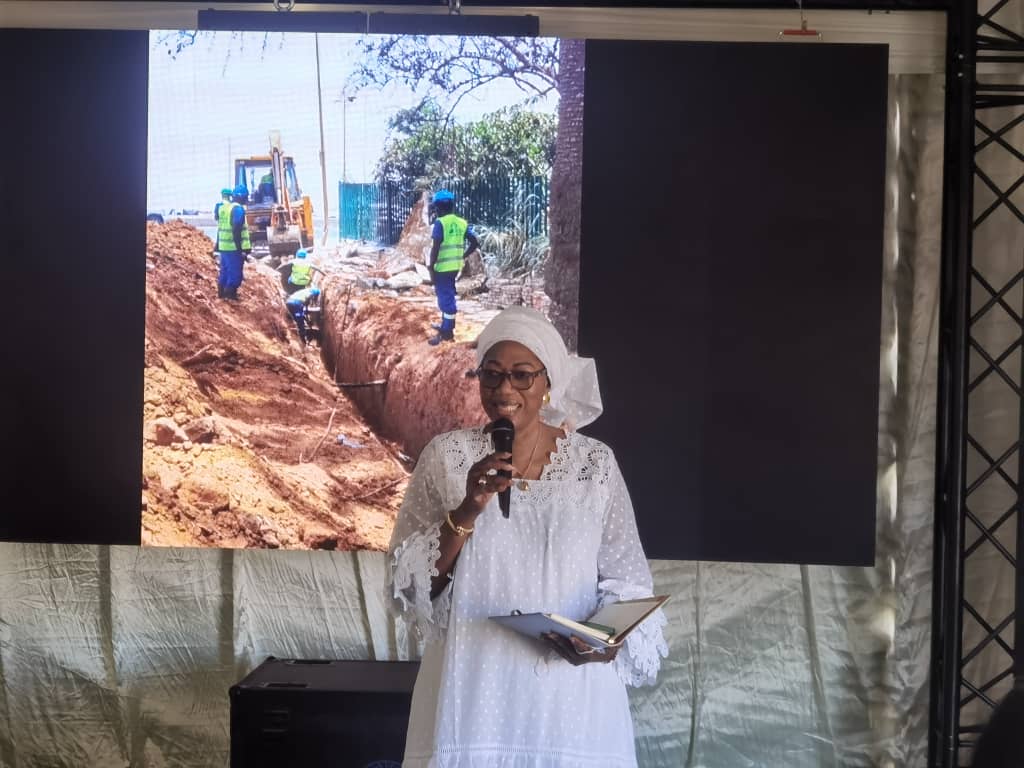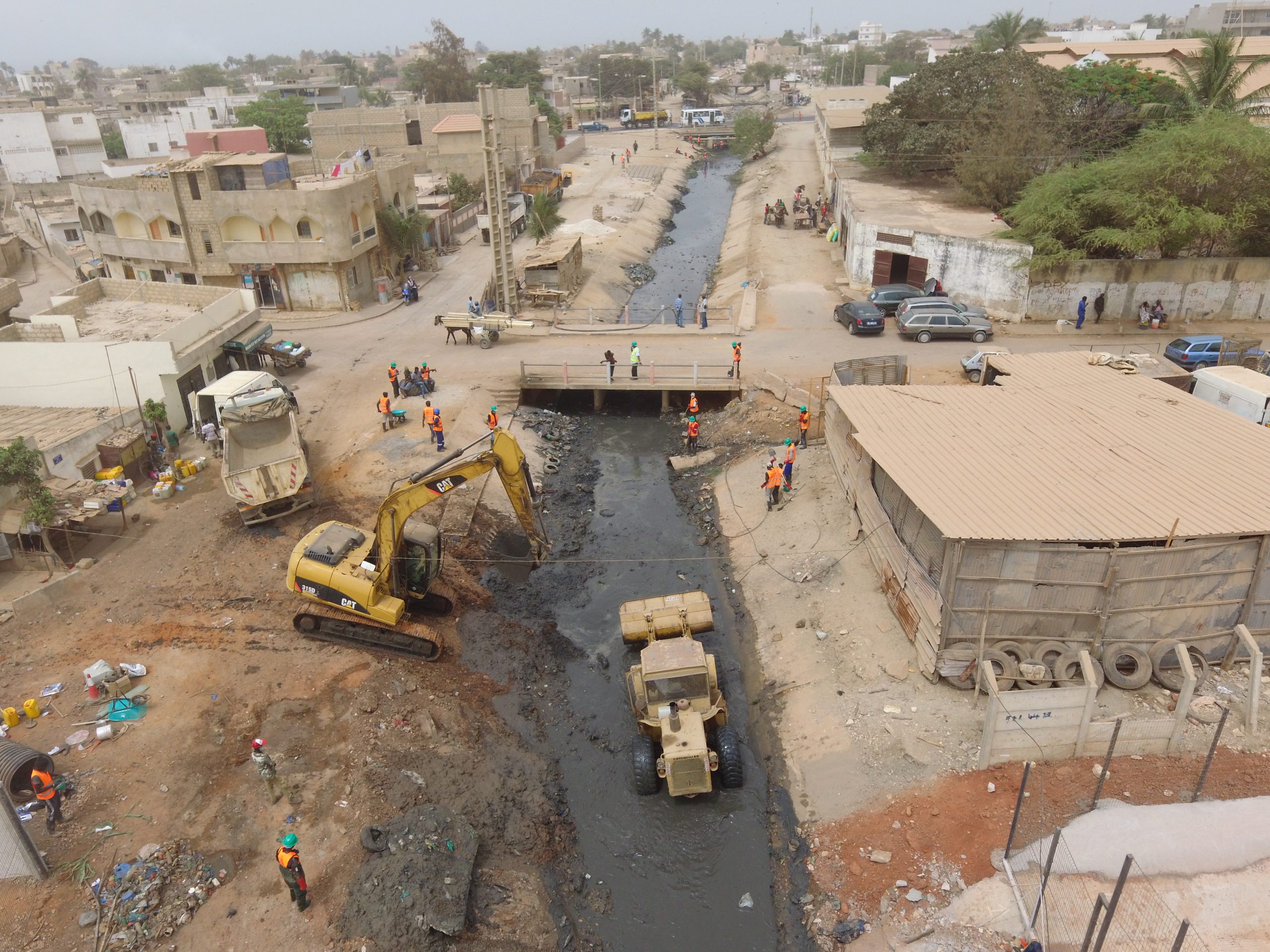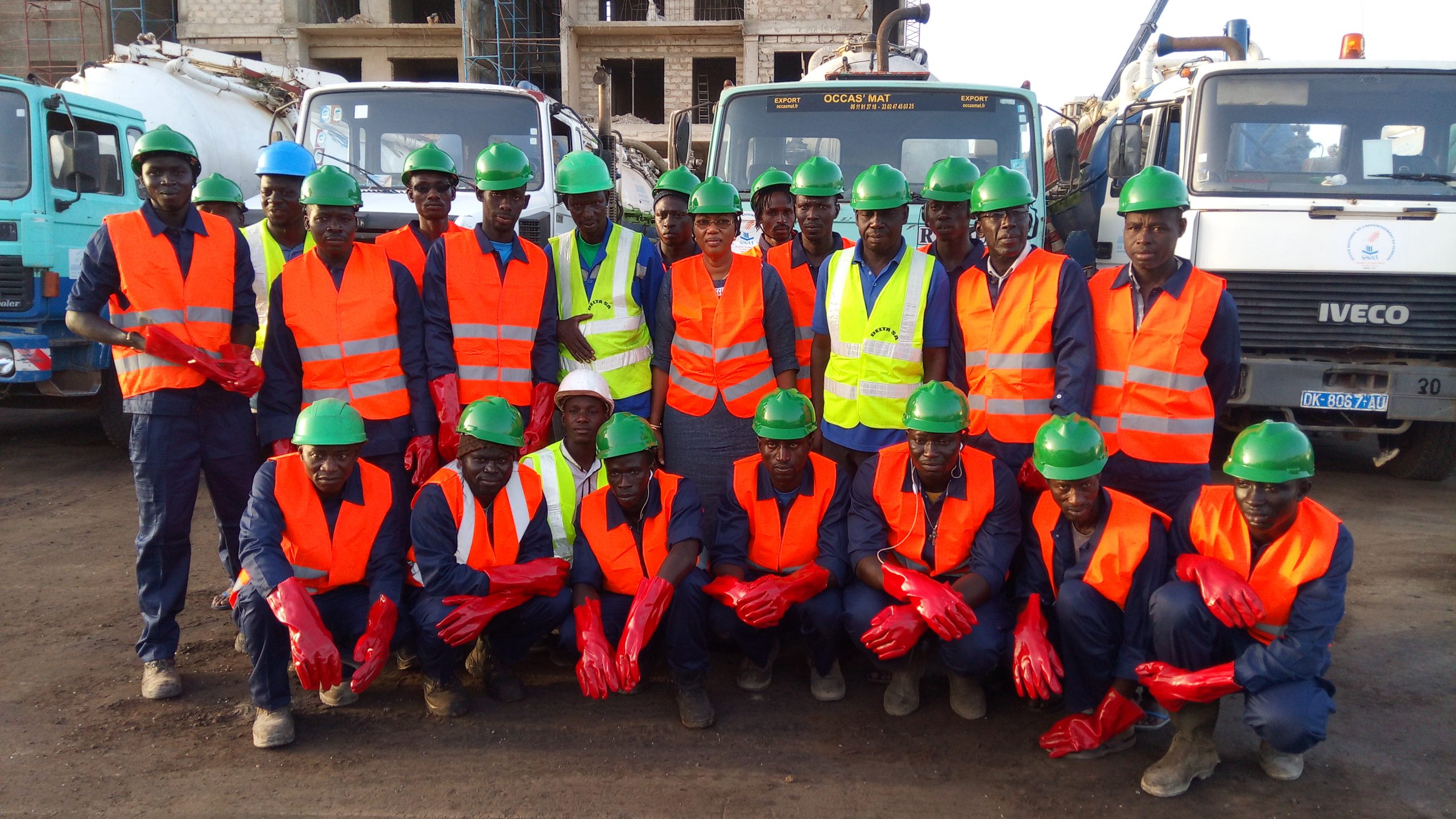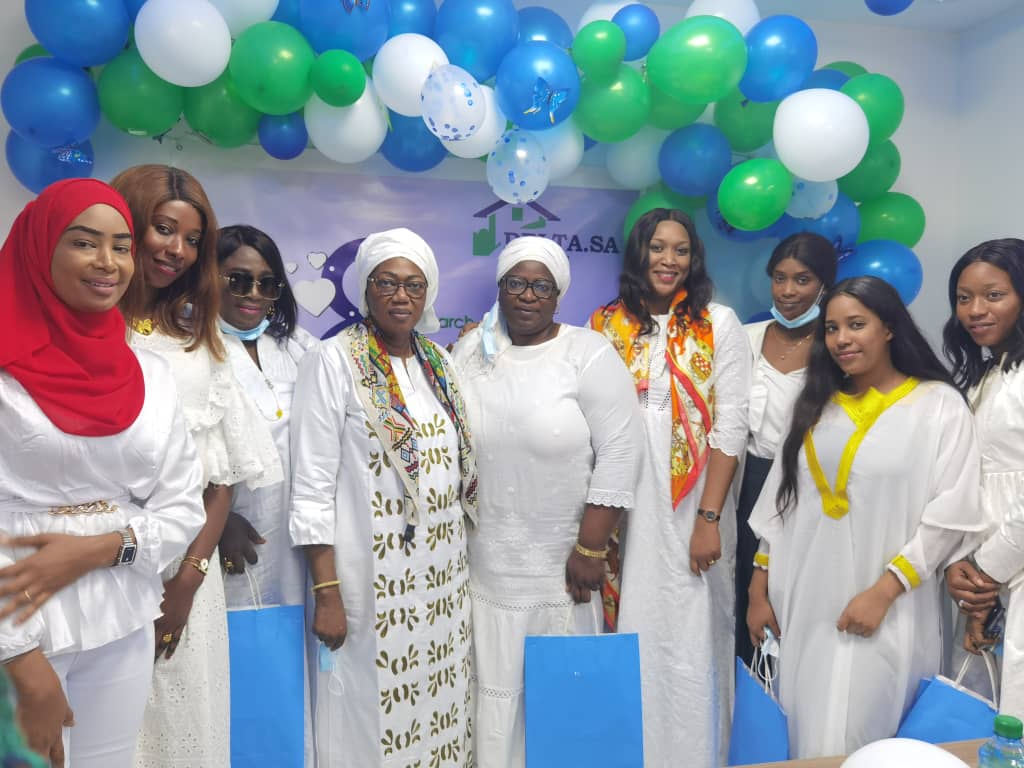Lena Tall Faye is helping to ensure safe & healthy communities in Senegal while growing her business through a partnership with USAID’s West Africa Trade & Investment Hub.
By Fatima Datt, Communication Specialist
Being the eldest in a family of eight children, Lena Tall Faye felt a duty to help her mother at a young age. Described as a courageous woman Lena’s mother fought to raise her eight children in the best conditions. With this in mind, though Lena desired to pursue higher education, she opted for professional typing training and found a bank job to support her family.

Though it seemed a wise decision then, her professional situation became unstable when the bank where she worked began going through difficult times, and layoffs were announced. Knowing that she could lose her job suddenly and without notice, Lena Tall Faye feared being unable to support her family. Deciding to be proactive, her entrepreneurial spirit was awakened.
Without any bank loan or financial help and a goal to be independent while participating in the development of her country, she went through administrative procedures to create a cleaning business called Delta. Her first service was to ensure the cleaning and general maintenance of a large school. From this informal start, Lena Tall Faye expanded the company, officially establishing it in 2002. Today, as a leading female entrepreneur serving as the CEO of Delta SA, she is continuing to build a company that has become a significant force in the field of sanitation in Senegal.
Like many countries in West Africa, sanitation is a crucial issue for Senegal’s development, posing significant environmental and public health problems. In 2022, nearly half of the Senegalese population still deals with poor sanitation conditions and sub-standard sanitation services. Some of the most prominent issues leading to unsanitary conditions in Senegal are the discharge of wastewater from the sewage system into the streets and the lack of public toilets, leading to open defecation especially in Dakar’s suburbs and the countryside. The frequent floods during the rainy season exacerbate these problems, negatively impacting the environment, the economy, and the country’s image. As the established services offered to the public haven’t done much to curb these challenges, the commitment of local private actors—like Lena Tall Faye—is crucial for the effective and sustainable management of the sanitation issue.

Operating in such a difficult sector—that also happens to be dominated by men—and being a woman and mother, it was important for her to establish herself as a solid business leader while managing her responsibilities well and maintaining her family as a top priority. She found it hardest to gain access to funding, as, in Senegal, sanitation is first and foremost a public sector where most of the investments in infrastructure are the responsibility of the State and come with various limitations. To overcome this and ensure the sustainability of the business, Lena Tall Faye developed other activities for Delta SA by bidding on private sector tenders.

Within this context, the USAID-funded West Africa Trade & Investment Hub (Trade Hub) awarded a $999,493 (CFA 555 million) grant to Delta SA in September 2021 to improve existing sanitation facilities and increase access to improved sanitation services in Senegal. With the Trade Hub grant being leveraged with investments secured through a financial partnership with Investisseurs et Partenaires (I&P), Delta SA also benefits from the support of I&P through the I&P Africa Entrepreneurs 2 (IPAE 2) fund, which supports the company in strengthening its governance, organizational, and technical capacities, while accompanying it in its regional expansion objectives.
In collaboration with the Trade Hub, Delta SA is developing the business to improve the quality of sanitation services further, increase maintenance of the sewer system, improve the living conditions of the people in the project area, and increase and maintain employment. “Having an organization like the (USAID) West Africa Trade & Investment Hub target us for this investment is a huge boost, and it gives us the confidence to move forward in our never-ending quest to impact people’s lives positively,” says Lena Tall Faye.
Under the Trade Hub’s co-investment partnership, the company has acquired various equipment, including excavators, cranes, and concrete trucks. Delta SA is currently restructuring its organization and processes and building the capacity of its staff, including establishing its first monitoring and evaluation team that can now assess the impact of the company’s work on the population. The company also hired a communications agency to develop and implement its strategy to increase Delta SA’s visibility and better communicate its activities and results.
A significant focus for Delta is developing a plan to advocate for gender issues in the sanitation sector. Few women are active in the sanitation sector in Senegal. Even as their presence is increasing, they are often not working within the private sector but rather are employees of public services. Lena Tall Faye is heavily involved in advocating for women to create their own businesses in the sanitation sector, as few women take the initiative to do so. She also encourages young girls to study science subjects that are gateways to the field.

As a member of the Association of Water and Sanitation Professionals, she promotes opportunities in the sector to attract and inspire as many women as possible. Advocating at the national and international level, she encourages women to invest in this very promising sector. Lena Tall Faye advises them to dare take risks, leave their comfort zones, and see sanitation as a profitable sector with many opportunities to be maximized for countless women. She reminds them that they must fight even more to develop their businesses.
Speaking on the impact her company has had on her life, she shared,
“Delta is the initiative of a woman who believes in her potential, who thought that it would be possible, and who has always believed in her independence. I have not regretted creating this company, especially when I see all the people I have trained.”
One of the many achievements that make Lena proud since the beginning of her partnership with the Trade Hub is the human impact of the 4,000 Toilets Project. Delta SA was contracted to implement this project, which targets vulnerable households that are not financially able to afford sanitary blocks, giving them access to quality and well-managed sanitation services. The project to build 4,000 toilets for 4,000 homes was carried out under a contract with the National Office for Sanitation of Senegal (ONAS) with financing from the World Bank. The goal of the project is to provide communities in the regions of Dakar, Thies, Fatick, and Kaolack with improved toilets equipped with hand-washing devices, as well as access to public toilets that are sensitive to menstrual hygiene management. The project is estimated to impact 32,000 people with an average household of eight people.
Beyond the positive outcomes for the environment, public health, and the sanitary conditions within these communities, the ways individuals’ lives are impacted are the most meaningful to Lena, not just with the 4,000 Toilet Project, but with the sector as a whole. Her advocacy to bring leaders to better invest in sanitation is motivated by the immeasurable impact on the lives of those, especially the young girls and women, who are given access to services that reinforce their human rights while recognizing and protecting their dignity.

